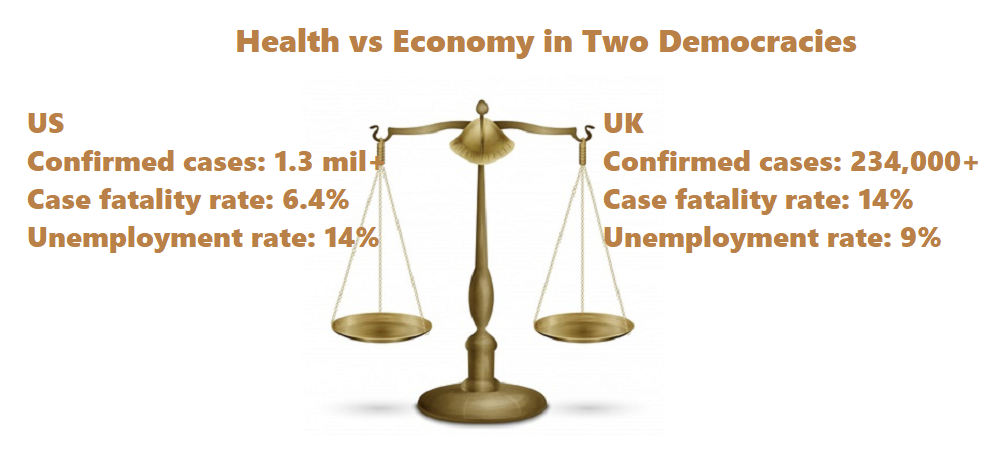Democracy Will Survive Pandemic: Atlantic
With the Covid-19 pandemic democratic and authoritarian governments alike shut down economies and cracked down on public activities. To protect public health, large majorities in democracies acquiesce on surveillance and other controls that were once unthinkable. “Immunity certificates, mass testing, government surveillance, and a volunteer army of contract-tracing officials are no longer the policies of a police state, but ones to restore basic freedoms,” writes Tom McTague for the Atlantic. His essay focuses on Great Britain, which lacks a single constitution detailing powers and checks on that power. Enforcement of new powers varies widely, but McTague warns that erosion of freedoms is often gradual, in response to such crises. Worries emerge that such governments will retain such powers long after the pandemic subsides. While McTague suggests democracies are stronger than many assume, citizens embrace and develop norms over time and there is danger that some parts of society – based on age, race, religion or other factors – may be granted more freedoms than others. Still leaders cannot risk defying pubic expectations for reasonable protection against the disease and economic welfare. Extreme measures lacking decency and concern for the common good invite discontent and unrest, and as McTague puts it, consent for authority melts away. – YaleGlobal
Democracy Will Survive Pandemic: Atlantic
To combat the coronavirus, governments have grown more powerful, balancing health versus jobs; worries emerge about liberty and democratic norms
Thursday, May 14, 2020
Read the article from The Atlantic about government power and democracy during the Covid-19 pandemic.
Tom McTague is a London-based staff writer at The Atlantic, and co-author of Betting the House: The Inside Story of the 2017 Election.
The Atlantic
TheAtlantic.com Copyright (c) 2020 by The Atlantic Monthly Group. All Rights Reserved.